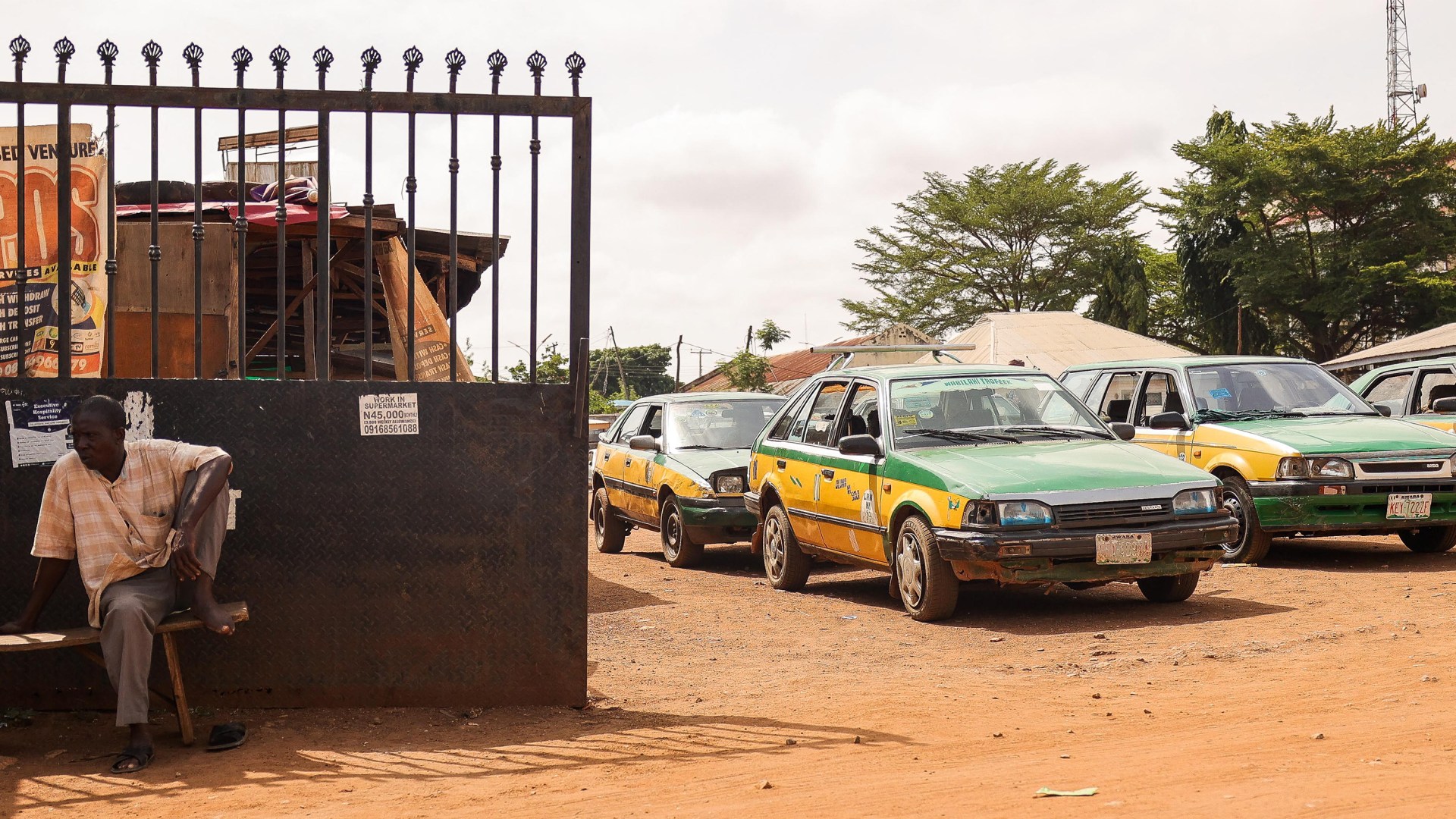Peculiar Chinedu thought October 10, 2024, would end like any other day—taking the bus home from her administrative job at a law firm in Federal Capital Territory (FCT), Nigeria’s capital region. The skies darkened and threatened rain, people crowded the bus station, and Chinedu decided to take a taxi home.
A crowded taxi had one seat left, three of the four back seats taken by two women and a man. A few minutes later, Chinedu heard the male passenger shout, “Down!” She looked up from her phone and into the barrel of a gun. Chinedu remembers him bellowing, “Down!” again and forcing her head down as her stomach dropped with fear.
Chinedu had fallen victim to criminals called “one-chance robbers.”
One-chance robbers fill a vehicle with their own members, then lure in unsuspecting passengers. Robbers often leave one seat vacant and shout, “One chance, one chance,” at bus stops where passengers are too hurried to wait for a bus or licensed taxi. They then rob the passengers of phones and other valuables. Some gangs let passengers exit the car on their own. Others throw them out of the car, often causing injuries to the victims.
Criminal gangs use one-chance robbers to steal money from busy workers who need easy rides when the public transportation system fails. These robberies contribute to rampant crime that gives Nigeria the third-highest crime rate in Africa. Violent crimes, fatalities, and abductions in FCT rose in 2023 but began declining again in 2024.
Though Nigeria faces threats of violent extremism from Islamist groups such as Boko Haram, the European Union Agency for Asylum reports criminality as the primary source of violence. The agency also listed cult- and election-related violence, banditry, and kidnappings as security concerns for Nigerians. A 2023 study also identified Nigerian highways as high-risk zones for robbery and murder.
Many Nigerians do not own personal vehicles, leaving them open to one-chance robberies. Inadequate transportation and overwhelmed police forces—especially in urban areas—make preventing and prosecuting these crimes difficult. The prevalence of kidnappings and armed robberies in the cities is forcing the Nigerian government to address these complex security challenges. Still, robbers exploit gaps in transportation and policing.
In January 2024, the government launched a Special Intervention Squad to fight kidnapping and other criminal activities. In May, the Nigerian Police Trust Fund commissioned a new Divisional Police Headquarters to improve security. But research suggests that corruption, poor oversight, and inadequate training leave police under-resourced for the task.
A December 2024 survey by Nigeria’s National Bureau of Statistics (NBS) claimed that more than one in five Nigerians had been victims of crime and that crime incidents between May 2023 and April 2024 totaled almost 52 million. The NBS removed the survey documentation from its website after the State Security Service questioned its CEO, Adeyemi Adeniran. The survey suggests a staggering increase in crimes from the nearly 135,000 cases reported by the same bureau in 2017.
For Chinedu and other FCT residents, a poor public transport system means they need to take rideshares to make it to work. One transportation company based in Nigeria’s capital, Abuja, has only 241 buses and taxis and 231 staffers to serve more than 3 million FCT residents. The shortage of taxis means many car owners use their own vehicles to provide rideshare services. This makes it hard to distinguish between legitimate rideshares and ones run by robbers.
While robbers shook down the rideshare passengers for valuables, Chinedu prayed silently for the robbers to spare her life and let her return home in one piece. The two other female passengers screamed, only for the robbers to retaliate.
“They kept hitting my head,” said Chisom Okere, one of the passengers who bore the brunt of the attack. “And it was after the whole incident I realized that one of the robbers was hitting my head with a gun.”
The robbers let Chinedu go about 20 minutes after the robbery began, returning her phone after finding no bank apps they could use to withdraw money from her account. They dropped off Okere and the third woman four hours later in a district on the outskirts of FCT—62 kilometers from their starting point. The women tried to flag down motorists but found most were reluctant to stop.
“My clothes were torn, and I looked like a madwoman,” Okere said. Eventually the women found strangers willing to help them.
“It could have been much worse,” Okere said. “What if they pushed me out of the car while it was in motion, like some of them do? Would I have survived?”
Chinedu said recovering from the trauma of the robbery took time. For months after the robbery, she scrutinized cars and people at bus stops. She feared some might be members of one-chance-robbery rings or kidnapping gangs.
She hesitated to enter private vehicles, though finding available public vehicles—such as buses with empty seats—proved difficult. Sometimes Chinedu’s search for reliable private transportation made her late for work, but an understanding boss overlooked her lateness. Her parents—pastors at a local church—provided counseling and prayers as she healed.
But looking back, Chinedu said her experience during the robbery helped reinforce her faith in God.
“My belief in God and knowing he would never abandon me helped me overcome my fear.”













